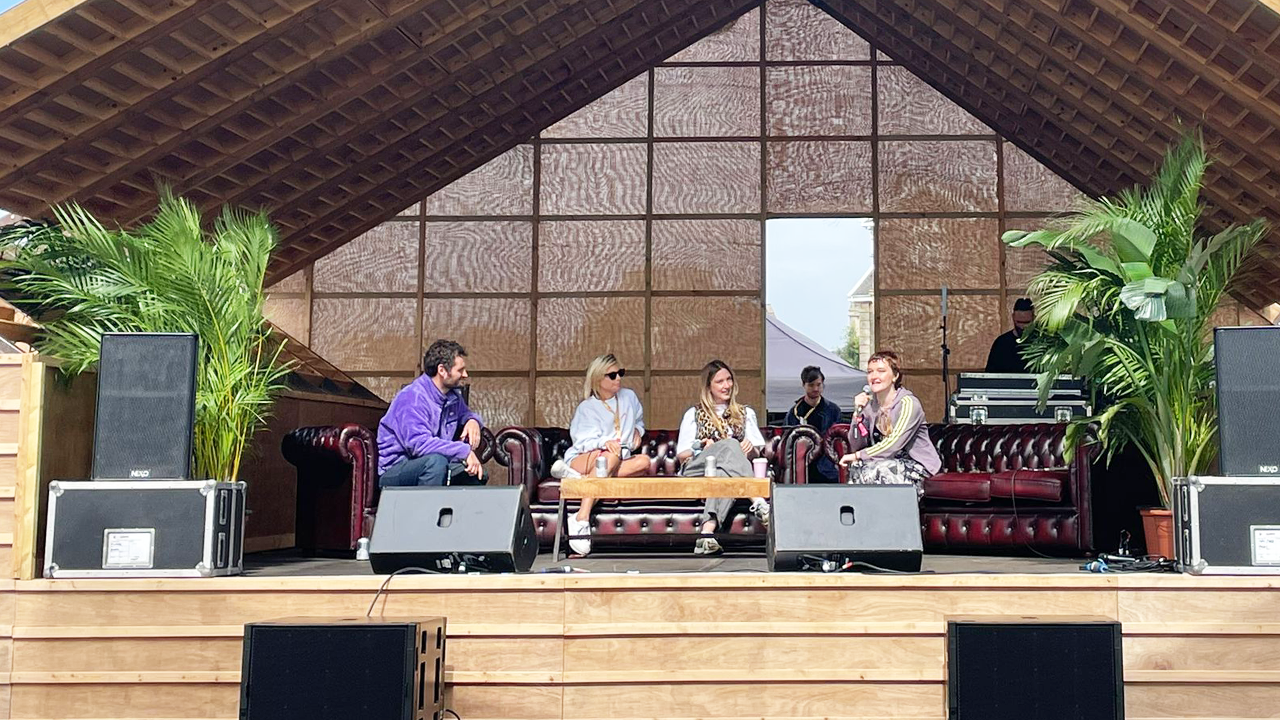
9, September 2024
Festivals for the Future
One of the best things about music festivals is that they’re held in Nature; a chance to gather and dance in the great outdoors, often surrounded by stunning views. But these events can have a big impact on the climate. The 2020 industry report, The Show Must Go On, revealed that UK festivals create over 25,000 tonnes of waste every year, and generate almost the same weight in carbon. Thankfully, a growing number of organisers are working hard to make festivals a force for good.
You may have seen the recent footage of abandoned tents littering Bramham Park in the aftermath of Leeds Festival. Many had been destroyed by strong winds caused by Storm Lilian, but people leaving tents behind at festivals is something that often happens, regardless of the weather.
On the same weekend as Leeds, Massive Attack played a gig with a difference on Clifton Downs, in their home city of Bristol. Act 1.5, a ‘climate action accelerator event’, aimed to have the lowest carbon emissions possible. Pre-sale tickets were only available to locals, Portaloos were swapped for compost toilets and stages were powered by rechargeable batteries. Food vendors only sold plant-based meals, electric buses shuttled attendees between local transport hubs and the site and there were no car parks. And staff backstage were supplied with Faith In Nature hand wash and washing up liquid! The New York Times asked whether the event was ‘the gold standard for a green gig’.
Act 1.5 marked 25 years of climate activism for Massive Attack, and was the result of their work with climate scientists. The group commissioned a report by the Tyndall Centre for Climate Change Research on what the live music sector can do about climate change, and addressed its recommendations in the planning of the event. They also shared the report as an open-source industry roadmap: Super-Low Carbon Live Music. It is hoped that it will become a blueprint for the more sustainable music festivals of the future.

Although festival stages aren’t all being powered by rechargeable batteries just yet, many organisers are already working hard to make their events more planet-friendly, and have been for several years. We’ve supported Kendal Calling’s Leave Nothing But Memories campaign, which encourages ticket-holders to take their tent home and be eco-conscious, for three years. This year, we rewarded those travelling by coach instead of car with a free bar of our soap, and our team all signed the pledge to be green-minded on-site. The Leave Nothing But Memories results for 2024 are yet to be released, but in 2023, 98.07% of tents were taken home from the beautiful Lake District site, and no waste at all was sent to landfill.
One week after Act 1.5, the organisers opened the same site for Forwards, a two-day music festival. As well as supplying more of our hand wash and washing up liquid backstage, we took part in a panel: ‘Taking A Stand – The Power of Being an Ethical Brand’. Our Brand Director, Simeon Rose, joined Jessamy Beeson-Jones of Karma Drinks and Lucy Scott from Tony’s Chocolonely for this lively discussion on the Information Stage (pictured above). It was clear that so many festival-goers care about where and how they shop, and the real difference they can make with their everyday choices. And it’s no surprise: a 2022 survey conducted by Music Declares and the University of Glasgow found that ‘music fans care more about climate change.’
Last year, at Bluedot Festival, Simeon joined a panel whose participants included Chris Jones from the Tyndall Centre (which conducted the report for Massive Attack) to talk about how festivals can be more sustainable. The very fact conversations like this are on the bill at festivals and are so well attended is wonderful.

Festivals may still have a long way to go, but there’s a sense of urgency in the industry and things are getting better. Once upon a time, not very long ago at all really, the aftermath of a festival gig was often thousands of disposable plastic cups trampled into the mud. Now, reusable cup schemes are the norm at most festivals. Compost toilets are becoming more commonplace, as are all-vegan vendors and incentives to arrive by public transport. Maybe one day in the not-too-distant future, we’ll look back on a time when all festivals had Portaloos and diesel generators in disbelief.
Most people who love festivals love the land they’re held on, and want to look after it. There’s a rising consciousness to do just that, and the future of festivals – and the planet – looks brighter for it.

